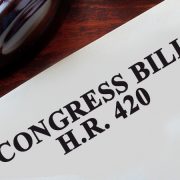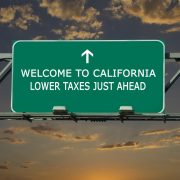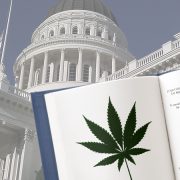Federal Cannabis Banking Access Coming? Check Out The Latest Word By Congress.
On February 13, 2019 a hearing was conducted by the Subcommittee on Consumer Protection and Financial Institutions which is under the U.S. House Committee On Financial Services headed by Chairwoman Maxime Waters (D–CA). Testimony was provided at this hearing which could lead to the subcommittee putting forth a bill in Congress that eventually could put into law guaranteed access to the banking industry for state-licensed cannabis businesses.
Details On The Hearing
The Committee recognizes that an increasing number of financial institutions have expressed interest in providing banking services to state authorized cannabis-related businesses; however, many financial institutions are refraining from offering banking services to these businesses based on several legal and compliance risks especially since federal law still classifies cannabis as an illegal Schedule 1 drug under the Controlled Substances Act. Furthermore, public safety and other concerns have been expressed by stakeholders, including state and local government officials regarding cannabis-related businesses having difficulties accessing basic banking services, such as depositing large sums of cash from their business activity. The Committee Memorandum can be viewed here.
Reps. Ed Perlmutter (D-CO), Denny Heck (D-WA), Steve Stivers (R-OH), and Warren Davidson (R-OH) have a discussion draft for the Secure and Fair Enforcement Banking Act of 2019 (SAFE Banking Act) that was considered at this hearing. The proposal, among other things, would harmonize federal and state law concerning cannabis-related businesses and allow these businesses access to banking services. Additionally, depository institutions and their employees would be exempt from federal prosecution or investigation solely for providing banking services to a state authorized cannabis-related business. The draft of the bill can be viewed here.
Click here for the recorded webcast of the hearing.
Higher Federal Taxes Still Remain
While the developments listed above are favorable for cannabis business in the U.S., it still remains to be seen when favorable changes will be made to the Internal Revenue Code which treats businesses in the marijuana industry differently resulting in such business paying at least 3-times as much in taxes as ordinary businesses.
Generally, businesses can deduct ordinary and necessary business expenses under I.R.C. §162. This includes wages, rent, supplies, etc. However, in 1982 Congress added I.R.C. §280E. Under §280E, taxpayers cannot deduct any amount for a trade or business where the trade or business consists of trafficking in controlled substances…which is prohibited by Federal law. Marijuana, including medical marijuana, is a controlled substance. What this means is that dispensaries and other businesses trafficking in marijuana have to report all of their income and cannot deduct rent, wages, and other expenses, making their marginal tax rate substantially higher than most other businesses.
Federal Reporting Of Cash Payments Still Remain
The Bank Secrecy Act of 1970 (“BSA”) requires financial institutions in the United States to assist U.S. government agencies to detect and prevent money laundering. Specifically, the act requires financial institutions to keep records of cash purchases of negotiable instruments, and file reports of cash purchases of these negotiable instruments of more than $10,000 (daily aggregate amount), and to report suspicious activity that might signify money laundering, tax evasion, or other criminal activities. The BSA requires any business receiving one or more related cash payments totaling more than $10,000 to file IRS Form 8300, Report of Cash Payments Over $10,000 Received in a Trade or Business.
The minimum penalty for failing to file EACH Form 8300 is $25,000 if the failure is due to an intentional or willful disregard of the cash reporting requirements. Penalties may also be imposed for causing, or attempting to cause, a trade or business to fail to file a required report; for causing, or attempting to cause, a trade or business to file a required report containing a material omission or misstatement of fact; or for structuring, or attempting to structure, transactions to avoid the reporting requirements. These violations may also be subject to criminal prosecution which, upon conviction, may result in imprisonment of up to 5 years or fines of up to $250,000 for individuals and $500,000 for corporations or both.
Marijuana-related businesses operate in an environment of cash transactions as many banks remain reluctant to do business with many in the marijuana industry. Like any cash-based business the IRS scrutinizes the amount of gross receipts to report and it is harder to prove to the IRS expenses paid in cash. So it is of most importance that the proper facilities and procedures be set up to maintain an adequate system of books and records.
How Do You Know Which Cannabis Tax Attorney Is Best For You?
Given that cannabis is still illegal under existing Federal law you need to protect yourself and your marijuana business from all challenges created by the U.S. government. While cannabis is legal in California, that is not enough to protect you. It’s coming down that the biggest risk is TAXES. Be proactive and engage an experienced Cannabis Tax Attorney in your area. Let the tax attorneys of the Law Offices Of Jeffrey B. Kahn, P.C. located in Orange County, Inland Empire (Ontario and Palm Springs) and other California locations protect you and maximize your net profits.










 Follow
Follow Follow
Follow